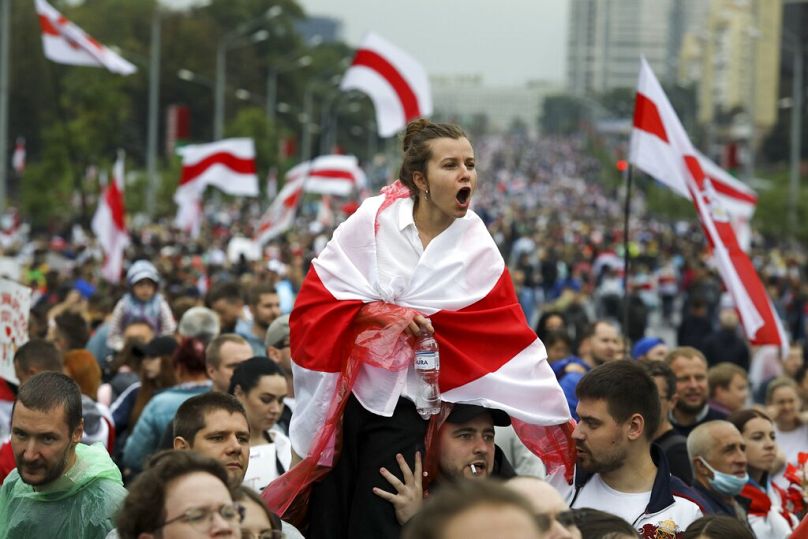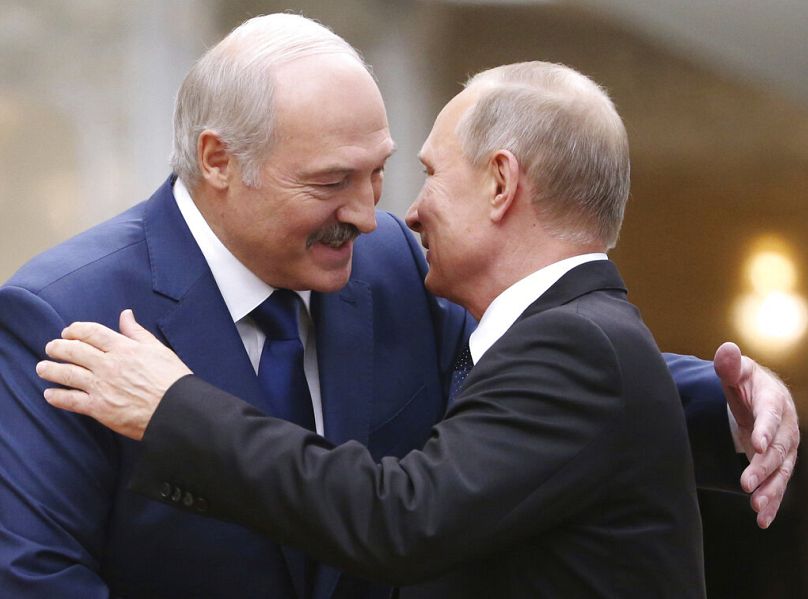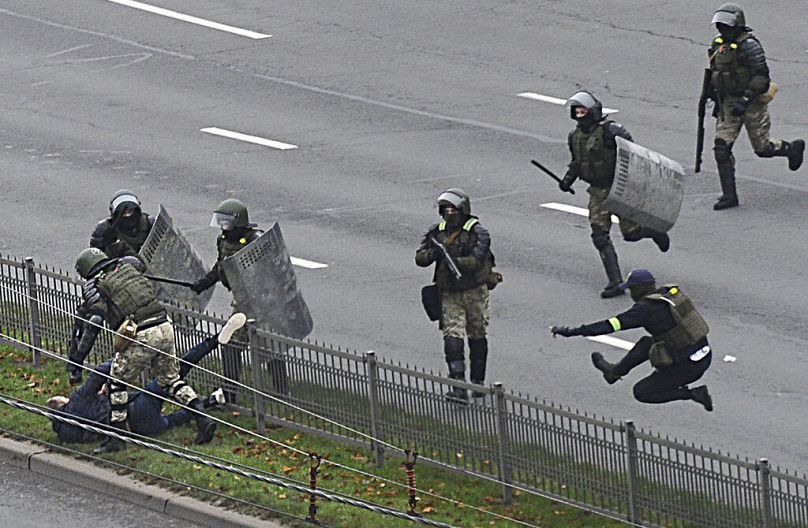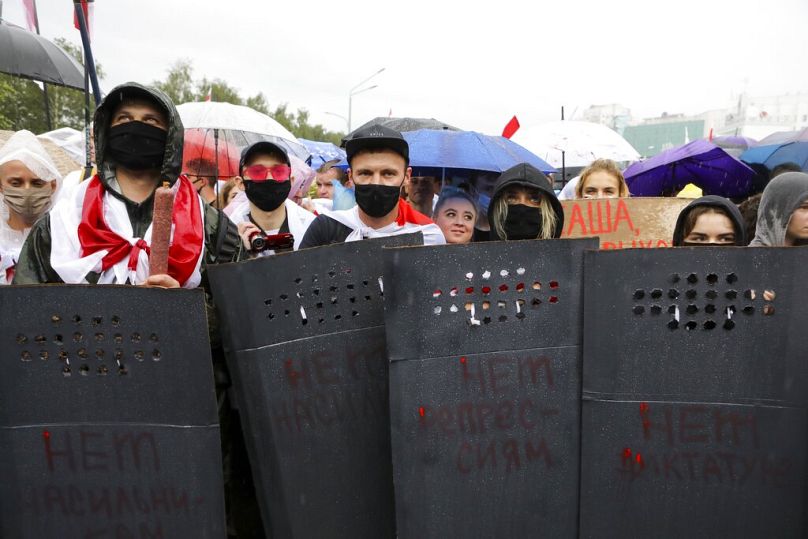Sanctions won't be enough to resolve the political crisis in Belarus. International non-recognition and the opening of criminal cases need to follow the upcoming Vienna Conference, says diplomat and opposition figure Pavel Latushka
Austria's Chancellor Alexander Schallenberg has announced a conference on the political crisis in Belarus, set to take place on Monday, November 22. The following is Belarusian diplomat and opposition leader Pavel Latushka's assessment of what steps need to be taken.
 ADVERTISEMENT
ADVERTISEMENT
 ADVERTISEMENT
ADVERTISEMENT
World history knows many examples of external mediation to resolve domestic political crises, when the degree of contradictions within a country does not allow for agreement or compromise.
To work out scenarios for potential mediation over Belarus, it is necessary to give a clear idea of the situation inside, as well as to understand the intentions of the illegitimate authorities who continue to hold power in the country by force.
I agree with the opinion of one of the leading independent Belarusian sociologists, Andrei Vardomatsky, who defined current Belarus as "the country of asphalted anger".
According to him, only 18.5% of Belarusians support the dictator Lukashenko. This is not that dissimilar to data from the Russian Public Opinion Research Centre (VTsIOM), which found 30% of Belarusians are ready to support Lukashenko while the overwhelming majority advocate for early presidential elections.
The dictator tries to present the suppressed (but not stifled) protests of Belarusians as a change in public opinion, toward him personally and toward his policies.
But it's no secret to anyone that the illusory calm is a consequence of the most massive repression campaign conducted in the history of 21st-century Europe.
Lukashenkо still holds power thanks to just two factors: Russia's support, and the support of the security apparatus, which has created a climate of fear in Belarusian society.
The crisis in the Republic of Belarus not only relates to the internal repression of civilians, but has gone beyond the state border. The dictatorial regime is destabilising the situation inside the EU and creating real threats to EU allies like Ukraine.
The Russian Factor
A geopolitical game is being played on Belarusian territory, where Russia is trying to fix its peremptory influence and control over our country.
Russia considers Belarus its exclusive sphere of interest. The Kremlin does not want Lukashenko in particular, and Belarus as a whole, to create a precedent for power handovers under pressure from the people. This would pose a limited, but still real, threat to the stability of the political system and power elites of Russia.
Taking into account a certain decline in the image of the President of Russia in the eyes of Russian citizens, the preservation of Belarus under Russia's wing strengthens the personal political position of the current President of Russia.
It is important for EU countries, the USA and allies to understand that only by opposing the regime of dictator Lukashenko, will it be possible to counteract Russia's plans.
Constantly raising the issue that pressure on Lukashenko is forcing him to drift towards integration with Russia is, in fact, an admission that everyone is ready to act according to the Kremlin's scenario: that is, not increasing pressure on the regime.
But importantly, only 3% of Belarusians are in favour of Belarus joining Russia (according to Andrei Vardomatsky's research).
Forty-five percent of Belarusians assess the Russian leader's policies negatively, 40% positively (VTsIOM’s data).
There is no public consent to the integration scenario in Belarus. This is the main deterrent for Putin, not the illusion that Lukashenko is the guarantor of Belarusian independence.
The history of Belarus mediation
Attempts at mediation were first made by European states and international organisations in the months after the 2020 rigged elections.
At the same time, Austria also made efforts to ensure a peaceful transition of power. A year ago, even despite the enormous internal pressure, it was not possible to force Lukashenko to agree to the terms.
Just when the achievement of this goal was looking as realistic as it ever could, a number of partners shifted to a position of waiting for the patient's hospitalisation instead of calling him an ambulance.
Lukashenko suspended internal pressure due to crimes against the Belarusian people, but did not stop their future inevitability.
Now in November 2021, Lukashenko is not interested in, and will not go, for real negotiations on the transition of power and the fulfilment of people's demands (the release of all political prisoners, an end to repression, and the initiation of criminal cases over the offences committed against civilians), all of which are the basic conditions for a potential discussion of the demand for early elections.
Taking these circumstances into account, as one of the co-authors of the idea of the Vienna conference, I see the need to put the priority goal first: focusing the capabilities and efforts of European countries on the need to develop a unified strategy of foreign policy and legal pressure on Lukashenko's terrorist regime.
A non-standard situation calls for non-standard tools
The non-standard situation lies in the fact that this time, the regime illegally arrested and detained tens of thousands of Belarusians.
Human rights organisations have been liquidated, as well as hundreds of other non-governmental, non-profit organisations. The activity of independent media has completely stopped.
Hundreds of thousands of Belarusians were forced to emigrate due to repression. I don't believe there are many idealists who consider it possible that Lukashenko will reverse all of the above.
At the same time, the regime is waging a hybrid war against third countries: illegal migration has been set up and torture is being used against citizens of foreign states.
What has the democratic world done under these conditions? It used a previously-applied set of tools: the non-recognition of election results and the imposition of sanctions.
Did it help? Though the scope of sanctions is more substantial than previously applied, they have not yet become a factor that stopped the regime, but created prerequisites for it.
The scale of Lukashenko's crimes is growing, and they have assumed an extraterritorial character.
Overestimated expectations for an understated desire
Mutual relations between the EU and the democratic forces of Belarus on the use of instruments of influence on the Lukashenko regime can be defined thus: overestimated expectations, running into an understated desire to use the opportunities available.
It seems the Vienna conference should focus on developing a strategy for resolving the European regional crisis, the centre of which is Belarus.
The lack of a sufficiently high level of political representation among the participants will indicate not only an underestimation of the importance of Belarusians' struggle to the future of Europe, but an underestimation of the already-created threats to stability and security in Eastern and Central Europe.
The philosophy that the problem will be resolved over time, or rather temporarily suspended, is utopian and dangerous.
The dictator is not capable and will never be capable of internal change or dialogue, and will not give up his aggressive rhetoric and actions against universal values.
The dictator should be given a very clear signal: 'no way back', together with a set of unconventional political and economic instruments of influence, in the form of international non-recognition, the loss of international legal personality, and an international criminal assessment of his actions.
The time has come not only to call Lukashenko's public actions illegal, but also to begin prosecution for crimes against humanity and terrorist activities.
If there are dreamers in Europe who believe it is possible to talk about the transition of power from Lukashenko, this is possible only under one condition: when Europe and the entire democratic world speak from the dominant position in relation to Lukashenko.
Today, everything looks the other way around. That's why the only subject who is dictating conditions now is the dictator.
Paying tribute to Austria and Chancellor Alexander Schallenberg, who assumes a great burden of responsibility for the effectiveness of this conference, it seems important to outline today the purpose that the conference should serve, to which the goals of the Belarusian democratic forces correspond. The goal of the democratic forces is internal mobilisation in Belarusian society to fulfil the demands of the Belarusian people.
Pavel Latushka was the Minister of Culture of the Republic of Belarus from 2009 to 2012 and is now a member of the Presidium of the pro-democracy Coordination Council for the Transfer of Power, and head of the National Anti-Crisis Management movement.














